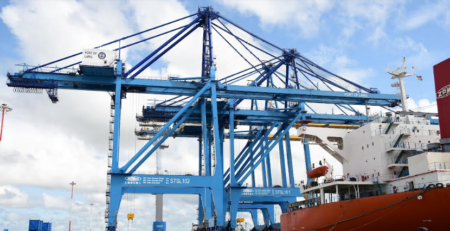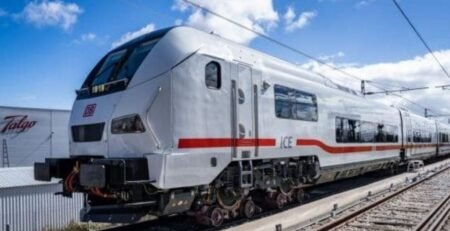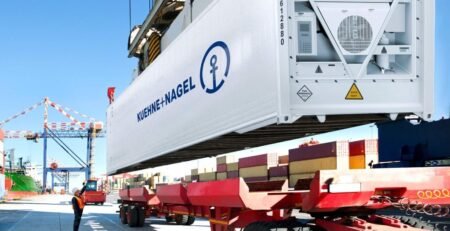DSV’s $16.2 Billion Acquisition of Schenker Clears Final Hurdles, Redefining Global Logistics Power Structure

By Eva Richardson | The Logistic News
April 16, 2025
In a landmark deal that reshapes the global logistics landscape, Denmark-based DSV has confirmed the completion of its €14.3 billion ($16.2 billion) acquisition of DB Schenker, following final regulatory approvals in the EU and North America. With the last compliance conditions met, DSV now stands as the largest freight forwarder in the world by revenue, outpacing legacy rivals including DHL Global Forwarding and Kuehne+Nagel.
“This acquisition is a strategic leap—uniting scale, specialization, and regional strength under one brand,” said Jens Bjørn Andersen, CEO of DSV, in an official statement.
The Making of a Global Leader
DSV’s growth-through-acquisition model is well-documented, with transformative deals such as UTi Worldwide (2016), Panalpina (2019), and Agility GIL (2021). The Schenker integration, however, marks its most ambitious move yet—bringing with it a 150-year legacy in freight, over 76,000 employees, and a dominant footprint in European land transport and contract logistics.
The combined group now boasts:
-
Annual revenues exceeding $46 billion
-
A workforce of over 120,000 logistics professionals
-
Presence in over 130 countries
-
Integrated capabilities in air, sea, road, rail, and warehousing
With this acquisition, DSV gains critical exposure to high-growth verticals such as aerospace, automotive, industrial manufacturing, and defense logistics—areas where Schenker has long held competitive strength.
Strategic Integration and Operational Impact
Unlike previous mergers where brand consolidation was swift, DSV plans to retain the Schenker name during a multi-year integration phase, particularly in Germany and select European markets, to honor existing client relationships and avoid disruption.
Integration efforts will focus on:
-
Aligning IT systems and digital platforms
-
Leveraging Schenker’s contract logistics infrastructure
-
Realigning procurement and capacity management strategies
-
Standardizing ESG and compliance frameworks across operations
“This is not just a merger—it’s an operational harmonization between two powerhouses,” noted Lars Wilhelm, a global freight analyst at Transport Intelligence.
Industry Implications
Analysts expect the ripple effects to be significant. DSV’s expanded buying power could impact freight rates across multiple modes. Competitors may be forced to consolidate or redefine service niches to maintain market share. Meanwhile, customers could benefit from greater network efficiency, bundled offerings, and enhanced visibility tools stemming from shared tech investments.
However, challenges remain. Labor unions, especially in Germany, are closely monitoring employment terms. Additionally, DSV must navigate overlapping operations without triggering service delays or internal inefficiencies.
Conclusion
With regulatory barriers cleared and operational planning under way, DSV’s acquisition of Schenker becomes more than a headline—it signals the beginning of a new era of scale-driven, multimodal logistics strategy. As the dust settles, one thing is clear: the global freight industry just gained a dominant new architect.
Eva Richardson is a senior correspondent at The Logistic News, specializing in global logistics strategy, mergers and acquisitions, and supply chain transformation.
The post DSV’s $16.2 Billion Acquisition of Schenker Clears Final Hurdles, Redefining Global Logistics Power Structure appeared first on The Logistic News.
Share this post
Related
Posts
Kenya’s Lamu Corridor Moves Into the Spotlight as Cargo Shifts North
NAIROBI – July 2, 2025After years of skepticism and political delays, Kenya’s LAPSSET Corridor is finally beginning to show real...
Germany Commits €4 Billion to Rail Freight Modernization Amid Growing Delays
BERLIN — July 2, 2025 “Germany cannot afford to let its logistics backbone crumble. Rail is not just infrastructure — it’s...
Air Cargo Peaks in Saudi Arabia as Pilgrims Begin Post-Hajj Departures
JEDDAH – July 2, 2025As millions of Hajj pilgrims prepare to return home this week, Saudi Arabia’s air freight sector...
Kuehne+Nagel Acquires PharmaForward in Strategic Move to Dominate Cold Chain Logistics
ZURICH – July 2, 2025Global freight giant Kuehne+Nagel announced Monday the acquisition of PharmaForward, a Netherlands-based specialist in temperature-controlled pharmaceutical...





